3 Creative Ways of Keeping Seniors Active
Slowing down physically and mentally is all part of the natural process of growing old. Sometimes, the decline in mobility may be due to joint aches and pains or a lack of friends or family to engage with. However, staying fit is an effective means of retaining independence and enjoying a healthy lifestyle, as stated by the National Institute of Health.
Activity in general – whether it is mental or physical – plays a key role in keeping the mind active and preventing illnesses. In this blog, we’ll take a look at 3 creative ways you can help keep seniors active.
Socializing
Joining a society or club is one of the best ways of staying active. Community organization runs and special interest groups for the elderly encourage movement and help keep them engaged. Activities such as social events, afternoon teas, and games assist in stimulating both mind and body.
Additionally, socializing via a society or club is a powerful tool in fending off feelings of loneliness and depressions that commonly plague older adults spending long periods of time indoors. It’s also beneficial for seniors receiving care for dementia and Alzheimer’s disease. Even those living with an in-house caregiver should venture out and enjoy the company of like-minded people.
Physical Exercise
While extreme temperatures can make it difficult to engage in physical exercise, there are still a large number of senior exercises that are less strenuous and can easily be performed on wheelchairs. Seniors with mobility issues benefit the most from consistent exercise regimen.
From simple actions that involve wrist movements and lifting the legs to swimming, physical exercise is a great way to beat depressions, meet new people, and refresh the mind.
Gaming
With the abundance and easy access to video games, the options for staying mentally active are limitless. Puzzles and board games are also great ways to socialize and keep the mind active. The recent trend of elders playing video games has proven to be a great tool for keeping seniors busy. In fact, one study shows how playing video games actually improved mobility in seniors after a stroke.
Different types of games have different benefits for the brain. For example, playing 3D games increases the visual system’s engagement levels in the brain. Anyone with access to the internet can play such games and be part of an online community.
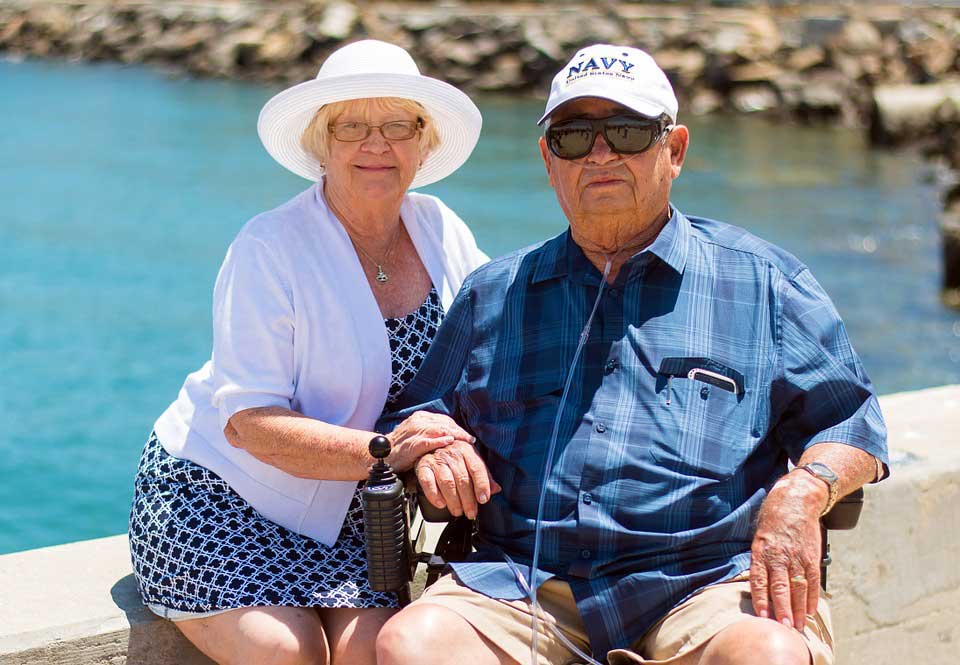
Other ways of keeping seniors active are to include them in light, household chores and encourage them to actively learn about new things. AvantGarde Senior Living is a senior housing community in Van Nuys, California. Contact us today for more information.
What seniors should know about Varicose Veins
Aging leads to swelling and enlargement of veins – a condition referred to as varicose veins. For some people, the concern is limited to the unsightly appearance but for others, it may point towards a more serious health issue. According to the American Heart Association, 23% of adults in the United States are estimated to be affected by varicose veins.
The emergence of varicose veins in older adults can lead to medical problems and decrease mobility. In this blog, we’ll highlight a few important considerations associated with varicose veins that seniors should be aware of.
What Causes Varicose Veins?
Damaged or weak valves can cause varicose veins. The arteries and vessels inside the body are responsible for carrying blood to and from the heart ensuring proper blood circulation. To return the blood back to the heart, veins in the lower part of the body have to work against gravity.
Elastic vein walls and muscle contractions in the lower part of the legs pump blood back to the heart. Miniscule valves inside the vessels act as barriers preventing blood from flowing backward. If these valves become weak or damaged, blood flows backward and pools inside the veins causing them to twist or stretch.
The following factors increase the chances of contracting varicose veins:
- Being female
- Being overweight
- Being pregnant
- Having someone in the family that already has varicose veins
- Standing for long periods in the job
- Being an older adult
The Symptoms
While the majority of cases do not involve pain, the following symptoms associated with varicose veins may appear:
- Veins that appear lumpy, twisted, or swollen
- Veins that are dark blue or purple in color
- Aching legs
- Swollen ankles
- A feeling of heaviness in the legs
- Leg cramps when suddenly rising up
- Spider veins
- Restless leg syndrome
Possible Complications
As mentioned earlier, most cases of varicose veins are relatively harmless. However, any condition that compromises blood flow carries the risk of creating health complications. Though rare, varicose veins can lead to:
- Bleeding
- Blood clots that lead to inflammation in the veins in a condition known as thrombophlebitis.
- Chronic venous insufficiency is a condition in which the skin doesn’t exchange waste products, nutrients, and oxygen with the blood because of weak blood flow. While the disease is not directly a consequence of varicose veins, both conditions are closely related.
All in all, the danger of varicose veins increases with age putting older adults at risk of decreased mobility, pain, and illnesses. Exercise, losing weight, and over-the-counter natural treatments prove effective in combating the disease.

Fortunately, AvantGarde Senior Living provides senior housing facilities in Van Nuys, California. A state-of-the-art senior community with qualified staff that helps seniors combat the negative effects of diseases such as varicose veins and live a happy and healthy lifestyle. Contact us today for more information.
How to Assist Seniors with Vision Problems
One of the worst losses associated with the natural aging process – along with mobility decline – is incurable vision impairment. According to the American Academy of Ophthalmology, nearly 4.2 million people over the age of 40 are visually impaired, 1.3 million of which are considered to be legally blind. While vision loss does set in as people enter the later stages of life, it can be difficult to adapt and rely on other senses such as smell, taste, and hearing that also weaken with age.
In this blog, we’ll share a few tips on how to assist seniors in dealing with vision problems.
Symptoms of Vision Loss
Vision loss is a gradual process that’s difficult to identify even by seniors themselves, which is why individuals over the age of 65 are recommended to visit their ophthalmologist once every year or two. This helps identify worsening eye conditions and take preventive steps to prevent further deterioration.Some symptoms of vision loss to look out for include:
- Knocking over objects or bumping into things
- Walking hesitantly
- Falling
- Squinting when trying to focus
- Discontinuing activities such as reading or writing
Helping Seniors Adapt to Vision Changes
Eye diseases such as cataracts, macular degeneration, diabetic retinopathy, glaucoma, and cataracts can significantly impact seniors’ functional abilities, reduce the quality of life, and even lead to depression. You should start off by learning as much as you can about these diseases. The following are a few ways to assist visually impaired seniors in retaining their independence.
Provide Sufficient Lighting
Keep the surroundings well-lit with the use of specialized bulbs that reduce glare and increase contrast. Cover reflective surfaces and provide proper lighting for all active areas that include places of reading, crafting, or playing cards. Under-the-counter lighting is good for places such as large work areas and kitchensand helps prevent trips and falls.
Adjust lighting according to the natural sunlight and avoid discrepancies that include bright lights in dark rooms.
Try to Minimize Falls
Place nightlights in bathrooms, bedrooms, and the hallways to prevent seniors from tripping or falling during the night. Remove hazards and eliminate clutter such as electrical cords and throw rugs. Consider relocating small or difficult to see items such as side tables, glass tables, and other similar types of furniture.
Go for Contrasting Colors
The contrast of bright and dark colors proves helpful for seniors that still have some vision left. Light-colored furniture and paint tend to blend in with each other making it difficult to discern between the furniture and the stairs, doorways, or other surrounding objects.
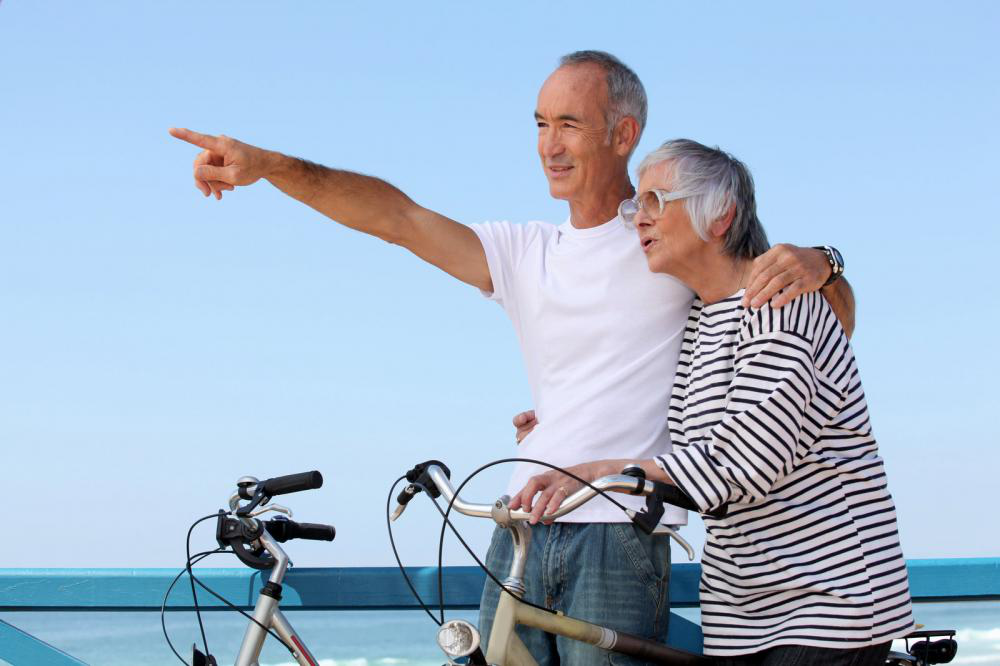
Even with vision impairments seniors tend to move around the home putting them at risk of serious injuries. AvantGarde Senior Living offers senior housing communities in Van Nuys, California that provides a safe and luxurious lifestyle under the supervision of trained and compassionate caregivers. Contact us today for more information.
Common Causes of Balance Disorders in the Elderly
Having good balance is the ability to maintain and control the body’s position comfortably while standing, walking and running, climbing the stairs, or even sitting down. It’s a core element in maintaining your independence and addressing problems with balance can make carrying out routine activities much more difficult.
According to The Journal of the American Osteopathic Association, falls are the leading cause of both nonfatal and fatal accidents for adults aged 65 and above. The journal also mentions how 30-40% of older adults experience at least one fall each year.
In this blog, we’ll go over some of the common causes of balance and gait disorders in the elderly.
Symptoms of Balance Problems
Problems with the bones, muscles, joints, heart, and blood vessels can trigger balance problems. Some of its signs and symptoms include:
- Feeling faint or lightheaded (presyncope)
- Unsteadiness or loss of balance
- Sense of spinning or motion (vertigo)
- Vision problems
- Confusion
- Feeling dizzy
Causes of Balance Problems
Balance problems can be caused by a number of conditions with each symptom pointing to a specific health issue. Let’s go over a few symptoms and their underlying conditions.
Vertigo
Vertigo refers to a sense of spinning and motion and is likely caused by the following conditions:
- Migraine: Sensitivity and dizziness to motion that occurs because of migraine headaches.
- Head injuries:One of the reasons for experiencing vertigo is head injuries that result in concussions.
- Meniere’s disease:In addition to dizziness, the disease can also cause a fluctuating loss of hearing, ringing sounds, and buzzing. Meniere’s disease is rare and its causes are yet to be fully understood.
- Motion sickness: A sense of dizziness in boats, airplanes, cars, etc. Usually happens to people with migraines.
Feeling Faint or Lightheaded
Lightheadedness is associated with two diseases: cardiovascular disease and postural hypotension. The former includes thickened heart muscles, blocked or narrowed blood vessels, abnormal heart rhythms, or decreased blood volume. The latter involves a sharp drop in blood pressure whenever the person immediately stands or sits down.
Unsteadiness or Loss of Balance
A loss of balance can be traced back to a number of issues that include vestibular problems, the side effects of medications, muscle, vision, or joint problems, and nerve damage to the legs.
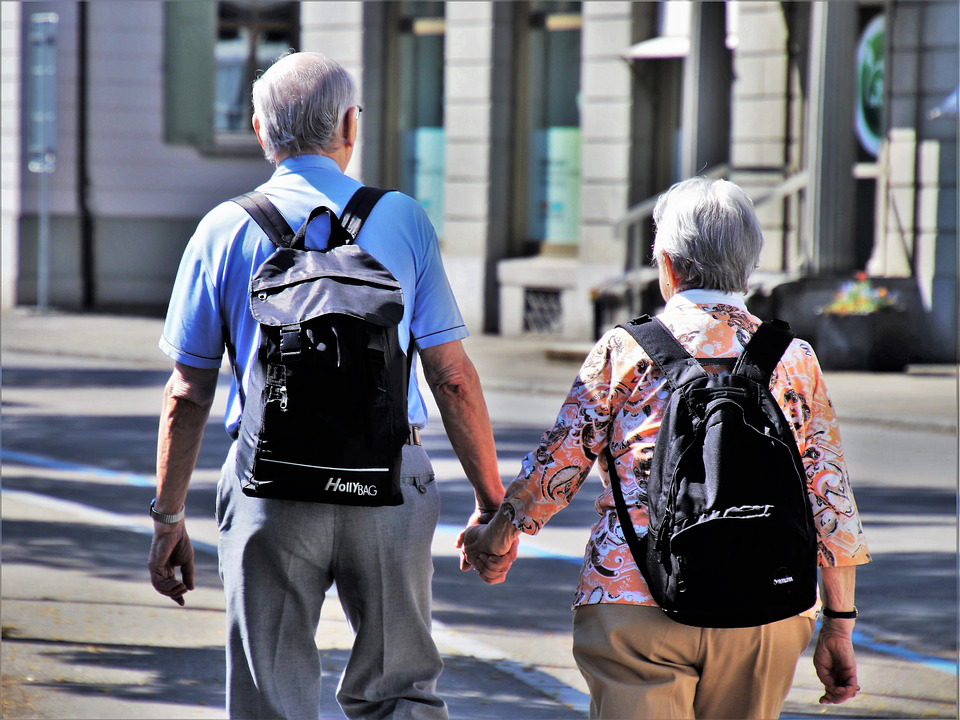
Especially in older adults, exercise and a healthy diet are necessary for combating balance disorders. AvantGarde Senior Living provides senior living homes in Van Nuys, California for older adults with balance problems. They have friendly and qualified staff that caters to all the needs of its senior members and community. Contact us today for more information.
An Expert Guide on Dealing with Stubborn Elderly Parents
No matter how good of an argument you make or how logical your point might seem, there are times when your aging parents will just refuse to listen. The ordeal can be especially painful when stubborn parents become increasingly susceptible to falls and illness yet still refuse to accept help. This often causes the children to become stressed (and in some cases, even clinically depressed) and results in a feeling of helplessness.
According to research carried out by Penn State University, around 77% of adult children believed their aging parents to be stubborn and unreasonable when it came to accepting help or advice. In this blog, we’ll share a few expert tips on how to deal with stubborn elderly parents.
Get Outside Help
If elderly parents flat-out refuse to any and all of your requests, try to get someone else involved that your parents are more likely to listen to. This could be your siblings, relatives, or neighbors with whom they have a good rapport. Just make sure that the involvement doesn’t seem like an intervention and more of a conversation.
Be Patient
This is perhaps the most effective (and difficult!) step required to handle the situation. Having patience is what’ll allow you to not get upset and have calm conversations with your parents. At times, an inability to control one’s emotions is what further adds fuel to the fire and causes the situation to blow out of proportion.
Keep it Simple
Sometimes, giving out less information is better. Understand that your parents’ stubbornness comes from mental decline and an inability to judge what is best. That’s why overloading them with information about the day-to-day activities is often not the right choice to make. Let them know what’s going on by providing general information and keep things simple and easy to understand. This way you’ll be giving them fewer grounds to start an argument.
Prioritize the Problems
Know and understand that not all problems can be solved at once. If you have 6 things you want your parents to agree to at the same time, the chances of encountering resistance will be very high. But if you just focus on one or two, it’s highly likely that they’ll agree to it.
Prioritize what needs to get done, keep realistic expectations, and don’t dwell too much on what couldn’t be accomplished.

Remember that you can’t win every time and that it’s perfectly alright to seek professional help. AvantGarde Senior Living is a senior living community in Van Nuys, California that ensures all of its members have access to recreational facilities, socializing events, and qualified caregivers. Contact us today for more information.
A Guide on Communicating with seniors that can No Longer Speak
According to the National Institute on Deafness and Other Communication Disorders (NIDCD), around 7.5 million Americans have trouble using their voices.
Communication with seniors who can no longer speak can be an uncomfortable experience. There’s always the fear of saying something hurtful or negative to individuals who may not be able to express their feelings. In this blog, we’ll present a short guide on how to effectively communicate with seniors that can no longer speak.
Rely on Touch
For those relying on touch to communicate with seniors, keeping an eye out for nonverbal cues such as body language is very important. Remain attentive and try to identify subtle changes in expression, posture, breathing, and behavior to determine what they wish to communicate. Before you attempt to express physical affection or provide hands-on care, inform them of what you’re going to do before you actually do it.
For example, saying things such as “I really feel like giving you a hug” or “I’m going to apply some lotion onto your arms”. There may be days when they don’t feel like being touched so be careful and respect their space. Simple gestures such as holding hands can go a long way in showing elders that they’re loved and cared for.
Rely on Hearing
The conversation can seem a bit awkward if your loved one is unable to respond. But even when it feels like a one-sided affair, know that such connections are still beneficial. With a little bit of practice, you’ll get over the discomfort.
You don’t really need to have an entire talk planned out. Just speak about events happening in your day-to-day life, what’s new with family members and friends. Elderly people also love to reminisce about past events. What’s important is to keep the conversation light and uplifting. It may not seem like it, but having a prolonged conversation can return a sense of normalcy into an old, loved one’s life.
Rely on Books
A lesser known fact is that seniors enjoy being read to. Do a bit of research to see which books or topics they enjoy. With each visit, you can read to them a chapter or two. Sometimes, they might not be able to comprehend what you’re saying but your voice may have a soothing effect anyway.

Being unable to speak can place a person in a position of vulnerability. AvantGarde Senior Living is a senior care community in Van Nuys, California that’s home to a team of qualified and compassionate caregivers. They ensure each member of the community is given the right amount of love, care, and attention. Contact us today for more information.
Ways to Improve the Memory of a Patient with Alzheimer’s
Statistics show that in 2018, 5.7 million Americans had been diagnosed with Alzheimer’s disease.
Approximately more than 200,000 people above the age of 65 were diagnosed. But in the U.S., the disease is known to affect individuals aged 50–65 and older. Moreover, it has been estimated that by 2050, the treatments for Alzheimer’s will cost the country more than 1 trillion.
The report also shows that every 65 seconds, someone in the U.S. is diagnosed with Alzheimer’s. African-Americans are more likely to be diagnosed than Caucasians.
Taking care of a senior loved with Alzheimer’s isn’t easy. It can be stressful not being able to give them the proper care they deserve. It’s also understandable that you feel immensely guilty not being able to your loved the time, patience, and love they need.
But know that there are ways you can help them regain their memory.
Here are a couple of things you can do.
Be Understanding and Patient
It’s understandable that caring for an elderly loved with the disease can be incredibly frustrating and distressing for both you and your loved one. Your elderly loved one will forget certain words, actions, and sometimes behave erratically.
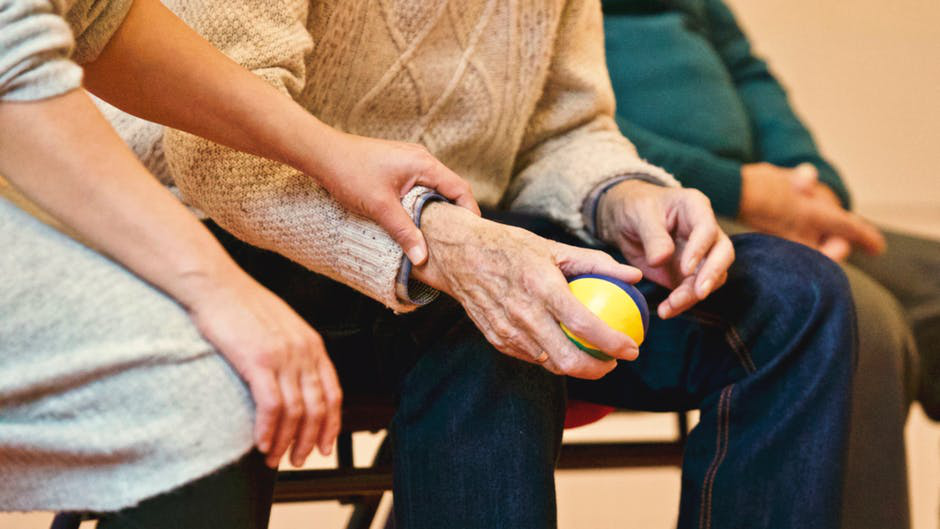
The best thing to do in such situations is to try and be as understanding and calm as possible. Don’t show anger and frustration. If you need to, see if you can leave the room for five minutes to cool down.
Memory problems can severely change one’s ability to communicate effectively. From your tone to your body language, make sure you come across as warm, kind, and patient.
Try Brain Training Apps
In order to function properly, the brain needs regular exercise. By using brain training apps, you can help your elderly loved one improve their cognitive functions. Such apps and games stimulate the mind and are designed to make it easier for individuals to remember things.
For example, while playing a game, your elderly loved one will be required to remember small clues. Every time they fail, they can try again. Being repeatedly exposed to the same scenario can help improve their ability to recall what they need to complete the game.
Arts and Crafts
Arts and crafts are an excellent way for elderly patients with Alzheimer’s to improve their memory. They will be able to utilize their energy and think creatively. This will stimulate their mind. Furthermore, it’ll also help make them more independent.
If you’re living in Calabasas and need a senior care community for your elderly loved one, check out AvantGarde Senior Living and Memory Care. We specialize in memory care and offer a variety of living options for elderly individuals including independent living as well as assisted living.
Contact us at (818) 881-0055 for more information.
The Role of Regular Exercise in an Elderly Person’s Life
As we age, though still capable, our bodies are sometimes not in the peak shape that they once were. For this reason, sometimes additional care is needed to stay in shape for those of us among the older quartile of the local population.
The NCBI (commission of the US National Library of Medicine – National Institute of Health), published a report stating the importance of physical activity and exercise for seniors. Having worked extensively with people within the stated age bracket, we couldn’t agree more.
What Role Does Regular Exercise Play in an Elderly Person’s Life
As an elderly living community, one of our areas of focus is providing residents with the physical activity they need. Exercise and regular physical activity play a number of roles in improving the live quality of the elderly. This is not just physically but emotionally as well. Allow us to elaborate.
Increasing Life Expectancy
Exercise is known to help improve life expectancy, particularly in those who partake in it regularly. It does this by keeping our body chemistry and metabolism healthy as well as by getting rid of toxins and waste material within the body.
Muscle Mass, Bone Density and Stability
Our bone density and muscle mass tend to deteriorate as we age. This is particularly so if our physical activity is limited. Regular exercise coupled with a healthy diet improves both muscle mass and bone density. This in turn contributes to overall mobility and stability.
Cardiovascular Benefits
Regular exercise helps us get rid of excess fat and ensures that our cardiovascular system is in optimal shape. Given that cardiovascular disease is a leading cause for death not just here in the US but across the globe, exercise is a vital activity to combat this.
Reduction of Dementia Risks
Studies show that individuals with lives devoid of proper exercise, in most cases, have a higher likelihood of suffering from dementia. For those who exercise, this probability is significantly reduced. Furthermore, guided exercise for those who have already come down with conditions like Alzheimer’s is also helpful as this helps delay the progress and onset of the same.
Relief from Boredom and Depression
Finally, regular exercise also contributes to the emotional wellbeing of our aged and elderly loved ones. As you know exercise releases endorphins and make those partaking feel happier, healthier and more independent.
Winding Down
There are other benefits that exercise may hold for those we love who have passed their prime so to speak. If you’re looking for a senior living community in Calabasas, CA offering an extensive range of facilities for your senior loved ones, feel free to check out the senior living amenities we offer.
If you require more information about what we do and how we can contribute to better living for your senior loved one, feel free to get in touch with us! All the best until then!
Maintaining Positivity as You Age
Staying positive can become really difficult as you age. As you grow older, you’ve likely experienced all kinds of pain in life, you’ve probably lost loved ones on the way and your body properly doesn’t function the way it used to. But even after all the struggle; it’s important to stay positive for the sake of your physical and mental well-being.
Maintaining an Active Lifestyle
Staying physically active is essential for physical and emotional health. Just 30–40 minutes of daily exercise is enough to reduce stress and remain physically fit for longer. Many illnesses that come due to the weakening of bones and muscles can be prevented with regular exercise.
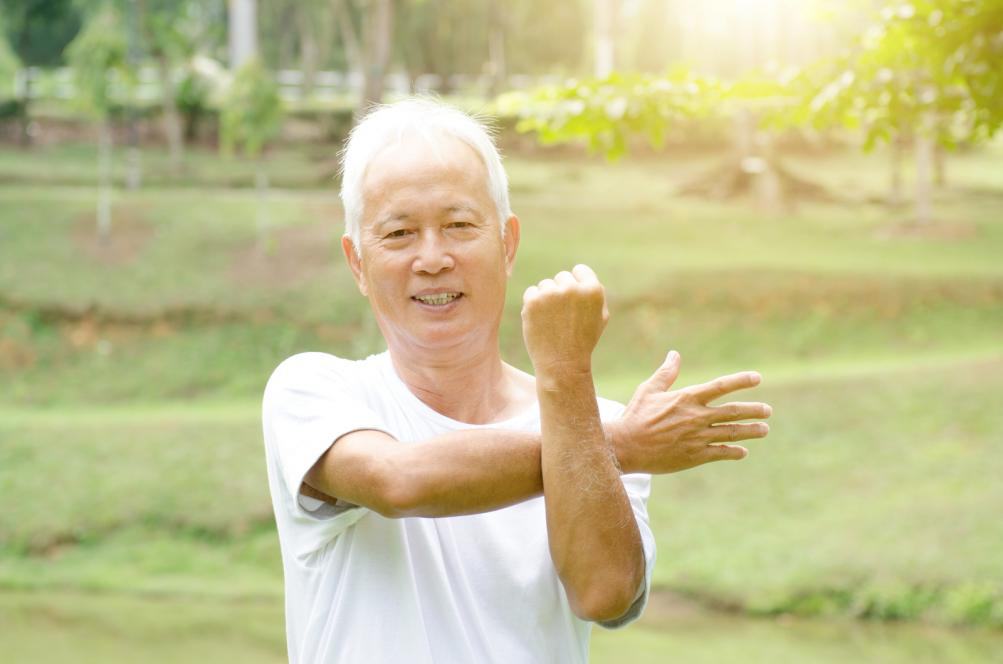
Physicians suggest power-walking and strength training for elderly individuals to maintain physical and mental fitness.
Socializing
Humans need to socialize with others in order to be healthy. Even though there are fewer opportunities to meet new people as we age, it’s important to have a social circle that we count on.
Health experts suggest that elderly people meet with their friends and family members regularly and stay engaged in the community.
The more they use their brains, the better it is for their mental health.
Reduce Stress
It can be difficult to stay positive knowing that your body doesn’t function as well as it used to. However, it’s crucial that elderly people realize the negative effects of staying stressed and overthinking.
Stress also causes sorts of health issues. Stress can speed up cognitive decline and weaken the body’s immune system making it more susceptible to illness.
It’s crucial for elderly individuals to take steps that combat stress. Senior living communities like AvantGarde offer meditation and exercise classes that enhance emotional health and reduce stress.
Engaging the Brain
It isn’t just the body that begins to deteriorate with age, the brain does too. Paying attention to mental well-being is essential in old age. By keeping the brain engaged with different activities, elders can delay and even prevent dementia.
If you have an elderly loved one, encourage them to play board games, read, solve crossword puzzles and even pick up a second language if they’re up for the task!
Find a Purpose
Many elders often feel a lack of purpose. Everyone needs a reason to get out of bed in the morning—even elders.
Elders may not have a job or daily chores, but they still need something to give them a sense of fulfillment.
If you’re living in Calabasas and need a senior care community for your elderly loved one, check out AvantGarde Senior Living and Memory Care. We specialize in memory care and offer a variety of living options for elderly individuals including independent living as well as assisted living.
Dealing with Aggression in Seniors with Alzheimer’s
According to a factsheet published by the NIA-National Institute on Aging, a commission of the US Department of Health and Human Services, the disease is the 6th leading cause of death in the US. It is also the most common underlying factor that contributes to dementia in the senior population.
If you’re one of the many who have senior loved ones suffering from Alzheimer’s, as trained and experienced professionals in the field of assisted living, we understand how hard this can be. We also understand that there are times when it can be a challenge to care for those we love due to the nature of their illness.
Aggression, Alzheimer’s and How to Deal With It
Senior loved ones suffering from Alzheimer’s may become, cranky, irritable and even aggressive at times. There are a number of reasons why this is so. These include difficulty communicating feelings like pain, discomfort or hunger.
It can also be due to other reasons such as environmental factors. These include crowded or noisy environments, over stimulating smells or simply feeling lost in their own surroundings.
In any case, if your loved one is struggling in such a manner, here are some things you should implement.
Explore the Cause
Look into possible reasons for your loved one to be behaving angry or reactive. Was it to do with the food they were served? Did it coincide with an unexpected visit by friends or family? Did they hurt themselves? Are they in pain or discomfort? Pain and discomfort in many cases in the prime cause of aggression in patients suffering dementia. The sooner you identify the cause, the sooner and better you can address the aggression.
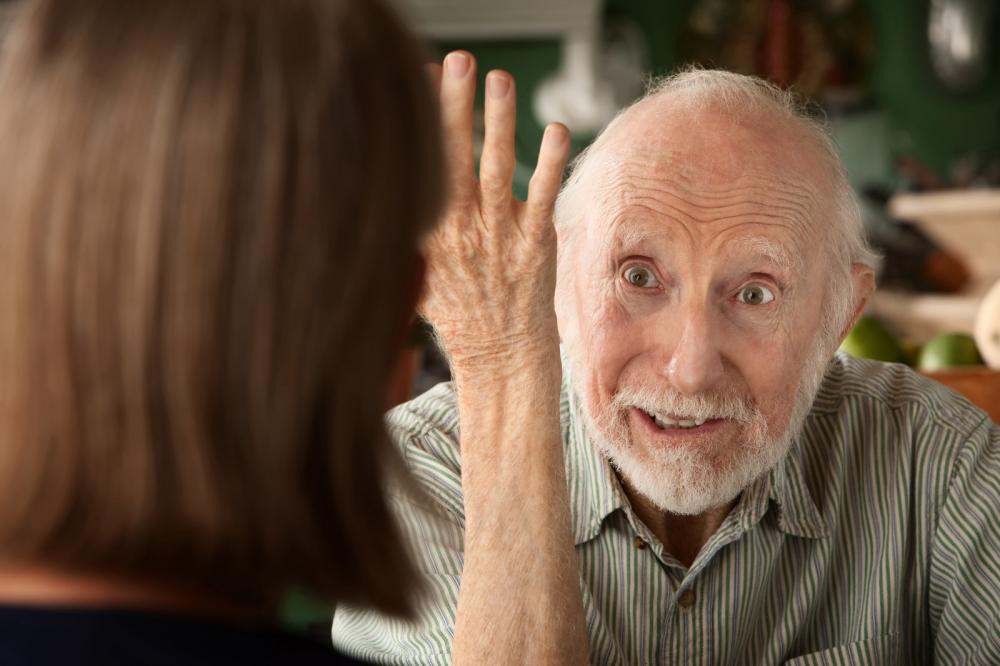
Feeling Focused
You might sometimes be tempted to get very heady and fact oriented when exploring the cause of your loved ones aggression. Try not to do this. Give their emotions and feelings tangible weight and significance. Do not ignore how they feel because at times, it is the simplest of emotional communication which is all they may be able to manage.
Patience
No matter how much love we have for someone, caring for an aggressive loved one suffering from Alzheimer’s is a challenging task. We may sometimes get flustered or frustrated. Try to check this as much as you can. Stay calm, be patient and don’t get angry. It’s a struggle for them too.
Relax Them or Shift Focus
If possible, try to do something that you know relaxes them or calms them down. Basically try to shift focus from the point of frustration to something less jarring or negative for them.
Pull Back
Remember as a caregiver, taking care of yourself is important too. If the aggressive behavior escalates or doesn’t seem to diminish, pull back, take a break and let someone else take over. At times, if the senior loved one in question is becoming a threat to themselves, you or others around, calling 911 and seeking professional support is highly recommended.
Are There Alternatives?
If you feel that it would be safer and better for your senior loved one to have easier and quicker access to professional care but need a pleasant and positive environment for them, you have options.
Assisted living facilities for seniors suffering from Alzheimer’s requiring added care such as ours are geared to provide your loved ones with a healing environment. This includes a community to interact with and care as well as health professionals on call 24/7.
If you’re located in Calabasas, CA and Alzheimer’s memory care and senior living homes, apartments and a community your loved one will thrive in, connect with us now!










